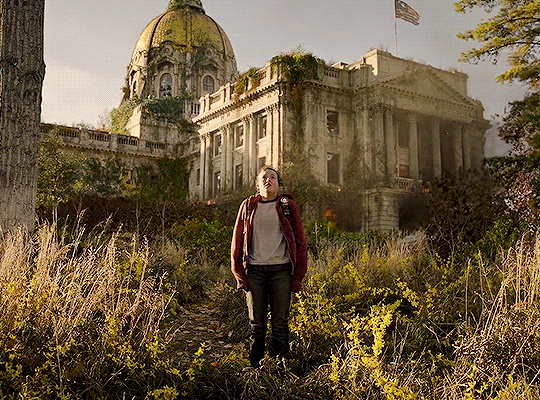"The Last of Us” and The Comforts of the Post-Apocalypse
- deadbloggerssociet

- Apr 8, 2023
- 3 min read
So, this might just be me but does anyone else think that the last few years have been a lot?
Like has the seemingly unending wave of political upheaval, the global pandemic, the constant threat of international warfare, prominent bigotry, hate crimes, record high depression rates, severe effects of global warming etc. - seemed a bit too much to anybody else? Or is it just me?
I know I wouldn’t be the first person to occasionally have the thought that it all seems a bit… apocalyptic.
Perhaps that’s why lately I’ve been finding an odd type of comfort in media that deals with showing the good of humanity after the apocalypse has arrived. So, here are my (mostly spoiler-free) thoughts on a show that has helped me cope with the end of the world as we know it.
HBO’s The Last of Us is not for the faint of heart.

Based on the 2013 PlayStation game of the same name, the series pulls no punches when it comes to blood, gun violence, and horrifying zombie-like monstrosities. The very first episode portrays the gut-wrenching pain of a father, losing his daughter to gun violence in military mismanagement.
While I am absolutely sure those scenes will put some people off from the get-go, ithat content is not what sticks in my head when I think about the series.
The Last of Us has no problems showing the worst of humanity torturing and terrorizing each other but that is not the true antagonist. Most zombie stories focus on the fact that humanity is often worse, and to be more feared, than the zombies. Trus to that theme, the real villain of The Last of Us is man made climate change - the very first scene of the show establishes that the fungal infection turning humans into hideous killer zombies is only able to exist because of the Earth’s rising temperatures.
A pandemic caused by global warming hits a lot harder post-2020 than it did when I was playing my PlayStation in high school.
So why does this show comfort me rather than disgust me?

Because The Last of Us also has no problems also showing the best of humanity. There are people working to preserve pre-apocalypse “classic” music be it from Wham! or Etta James. There is intense familial love between protagonist Joel (Pedro Pascal) and his brother Tommy (Gabriel Luna), and in the dedicated father-daughter relationship between Joel and deuteragonist Ellie (Bella Ramsey). The relationships in The Last of Us show that even when humanity is brought to its knees by forces out of its control, people can still be familial, loving, and kind.

Episode 3, “Long, Long Time” takes what were originally a few throwaway lines in the game and makes it an hour-long Shakespearean romance between two men, who have been left lonely and traumatized by the circumstances of the world around them. It shows them creating art together, eating dinner, making food.

In a time when mass media makes us feel like we as humans are surrounded by nothing but hostility and hatred, the idea that the people we love and the ways in which we love them will still exist even when the countries and homes and safety around us don’t - that is a beautiful form of comfort.
But there’s one more thing about The Last of Us that I find truly helps me with the onslaught of fear in the world.
The setting.

That might sound ironic; the setting of The Last of Us is nightmarish. A place where at any time you, or someone you love, could be killed by any number of horrifying people, or zombies. Where people are forced to work demeaning jobs and are at an unknown, yet constant, risk of deadly infection.
But that’s not what I mean.
In the vein of some of my favorite films by Studio Ghibli or games like The Legend of Zelda, The Last of Us shows what remains of the United States of America as a verdant, lush - albeit empty - land. Nature has consumed the place. Grass, trees, and freshwater spread freely outside of human settlements. Foreign animals live peacefully in the remnants of what used to be zoos. Human architecture is overtaken by moss, warmth, and flowers.
There is a beauty that The Last of Us conveys in the fact that whether it takes twenty years, or hundreds, one day Earth will rebuild itself from all the damage that humanity has done.
Whether or not we are here to see it.

If you can stomach blood, monsters, and heartbreak, then look for a little bit of strange comfort in the face of an increasingly nihilistic, dystopian world - get some tissues and watch The Last of Us.





Comments